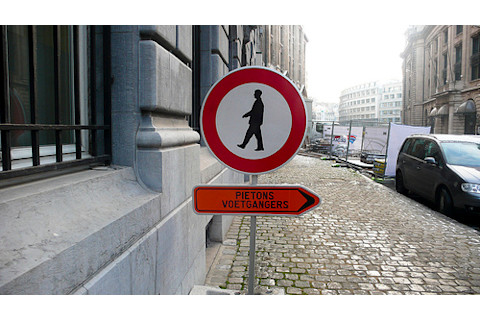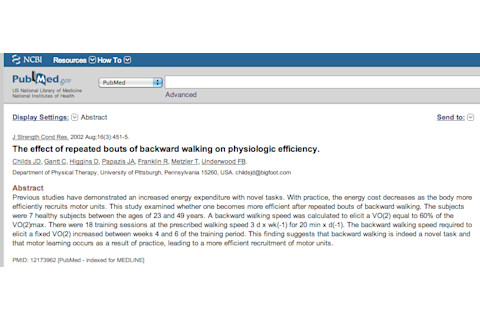
The effect of repeated bouts of backward walking on physiologic efficiency. "Previous studies have demonstrated an increased energy expenditure with novel tasks. With practice, the energy cost decreases as the body more efficiently recruits motor units. This study examined whether one becomes more efficient after repeated bouts of backward walking. The subjects were 7 healthy subjects between the ages of 23 and 49 years. A backward walking speed was calculated to elicit a VO(2) equal to 60% of the VO(2)max. There were 18 training sessions at the prescribed walking speed 3 d x wk(-1) for 20 min x d(-1). The backward walking speed required to elicit a fixed VO(2) increased between weeks 4 and 6 of the training period. This finding suggests that backward walking is indeed a novel task and that motor learning occurs as a result of practice, leading to a more efficient recruitment of motor units."

Photo: flickr/informatique
Related content: Discoblog: NCBI ROFL: The science of spontaneous synchronized stepping.
Discoblog: NCBI ROFL: And you thought walking while chewing gum was hard.
Discoblog: NCBI ROFL: And you thought walking while chewing gum was hard.
NCBI ROFL. Real articles. Funny subjects. Read our FAQ
!













